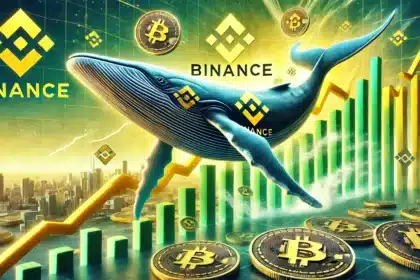As per the source, Spain’s financial landscape is undergoing a significant transformation as BBVA, one of the country’s largest banks, has received regulatory approval to offer Bitcoin and Ethereum trading and custody services. This move marks a substantial step forward in mainstream cryptocurrency adoption within Spain’s traditional banking sector.
BBVA Receives Regulatory Approval for Crypto Services
BBVA’s new crypto offering comes after receiving approval from the Spanish Securities and Exchange Commission (CNMV). The bank will now allow customers to securely buy, sell, and store Bitcoin (BTC) and Ethereum (ETH) directly through its platform. This approval positions BBVA as a pioneering financial institution integrating crypto into its banking services, following a similar initiative in Switzerland and Türkiye.
What BBVA’s Crypto Offering Includes
BBVA’s crypto services will enable Spanish customers to:
- Trade Bitcoin and Ethereum through the bank’s app.
- Store digital assets securely within the bank’s custody services.
- Manage crypto investments alongside traditional financial assets.
Initially, the rollout will be limited to a small group of users before expanding to the broader market in the coming months.

Why This Move is Significant
BBVA’s entry into the crypto space aligns with the growing demand for digital assets in Spain. By integrating Bitcoin and Ethereum into its offerings, BBVA is catering to an increasingly tech-savvy customer base that seeks a secure and regulated way to engage with cryptocurrencies. This move is expected to:
- Boost Institutional Trust in Crypto: BBVA’s involvement could encourage other financial institutions to explore crypto integration.
- Enhance Crypto Accessibility: Customers who may have been hesitant to use third-party exchanges can now trade through a trusted banking partner.
- Increase Market Adoption: A major Spanish bank offering Bitcoin and Ethereum will likely increase crypto awareness and usage in Spain.
How BBVA’s Crypto Service Compares to Other Banks
BBVA’s approach follows the trend of traditional banks slowly integrating crypto services, but it is one of the first major Spanish banks to take this step. While banks like Santander and CaixaBank have explored blockchain technology, BBVA’s move into direct crypto trading sets it apart.
Globally, major banks such as JPMorgan and Goldman Sachs have also expanded their digital asset services. However, BBVA’s model, which allows direct Bitcoin and Ethereum trading through a regulated banking app, provides a unique blend of security and accessibility for customers.

Potential Challenges and Regulatory Implications
Despite the positive outlook, BBVA’s crypto services will need to navigate regulatory challenges. The European Union’s Markets in Crypto-Assets (MiCA) regulation, which aims to provide a legal framework for digital assets, could impact how banks manage and offer crypto services. Compliance with anti-money laundering (AML) policies and investor protection laws will be crucial for BBVA’s long-term success in the crypto space.
What This Means for Bitcoin Adoption in Spain
Spain has been witnessing an increasing interest in cryptocurrencies, with Bitcoin being widely used for both investment and transactions. BBVA’s support for BTC and ETH could drive mainstream adoption by making crypto more accessible to retail and institutional investors alike.
This move also aligns with Spain’s broader digital transformation efforts, further integrating blockchain technology into financial services.
Final Thoughts
BBVA’s approval to offer Bitcoin and Ethereum trading in Spain is a landmark development in the country’s banking industry. By bridging the gap between traditional finance and crypto, BBVA is setting a precedent for other banks to follow. As Spain continues to embrace digital assets, this initiative could mark the beginning of widespread institutional adoption of cryptocurrencies in the region.
With BBVA leading the charge, the future of crypto banking in Spain looks promising, providing customers with safer and more convenient ways to interact with digital assets.
Stay tuned to The BIT Journal and keep an eye on Crypto’s updates.
FAQs
1. Who can use BBVA’s new crypto trading services?
Initially, BBVA’s Bitcoin and Ethereum trading services will be available to a select group of customers before being expanded to the general public in Spain.
2. What cryptocurrencies can I trade with BBVA?
BBVA currently supports Bitcoin (BTC) and Ethereum (ETH), the two largest cryptocurrencies by market capitalization.
3. How can I access BBVA’s crypto services?
Customers will be able to trade and store Bitcoin and Ethereum through BBVA’s banking app, integrated alongside their traditional financial assets.
4. Is BBVA’s crypto service regulated?
Yes, BBVA’s crypto services have been approved by the Spanish Securities and Exchange Commission (CNMV) and must comply with European regulatory frameworks like MiCA.
5. How does BBVA ensure the security of crypto assets?
BBVA provides custody services to securely store Bitcoin and Ethereum, reducing the risks associated with third-party exchanges.
6. Will BBVA offer more cryptocurrencies in the future?
While BBVA currently focuses on BTC and ETH, the bank may expand its crypto offerings based on market demand and regulatory developments.
Glossary of Key Terms
Bitcoin (BTC): The first and largest cryptocurrency by market cap, created by Satoshi Nakamoto as a decentralized digital currency.
Ethereum (ETH): A blockchain-based platform that enables smart contracts and decentralized applications (DApps), with ETH as its native cryptocurrency.
Custody Services: A secure way to store cryptocurrencies, often provided by banks or financial institutions, to protect digital assets from hacking or loss.
Markets in Crypto-Assets (MiCA): A European Union regulatory framework designed to provide legal clarity for crypto assets and their providers.
Anti-Money Laundering (AML): Regulations aimed at preventing illicit activities such as money laundering and fraud in financial transactions.
Securities and Exchange Commission (CNMV): Spain’s financial regulatory body overseeing securities markets, including crypto-related services.
Crypto Adoption: The increasing use and acceptance of cryptocurrencies by individuals, institutions, and governments for various financial activities.





























